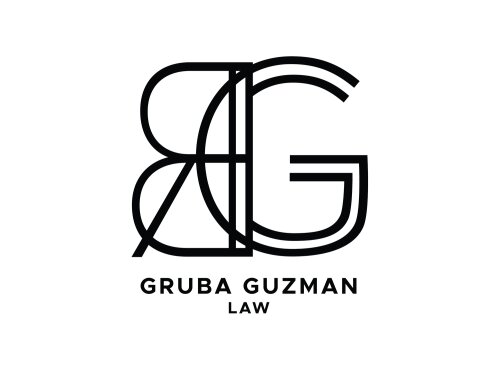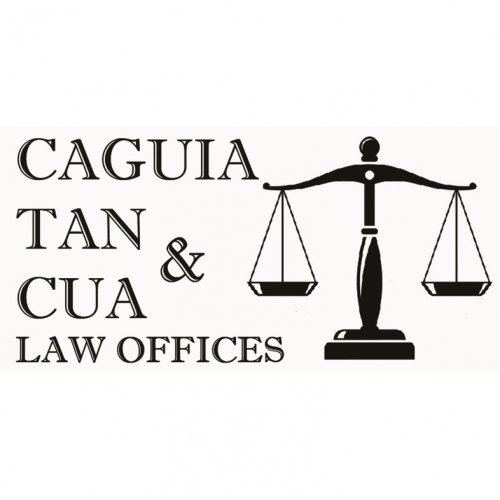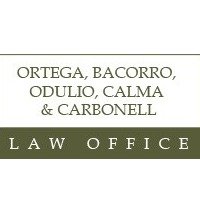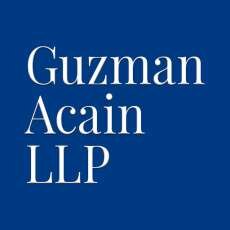Best Structured Finance Lawyers in Makati City
Share your needs with us, get contacted by law firms.
Free. Takes 2 min.
List of the best lawyers in Makati City, Philippines
About Structured Finance Law in Makati City, Philippines
Structured finance refers to complex financial transactions designed to address specific funding needs, risk allocations, or investment goals, usually beyond traditional lending or investment products. In Makati City, a recognized financial and business hub in the Philippines, structured finance is central to many corporate and investment activities. The city hosts many banks and financial institutions, contributing to a dynamic environment for securitizations, asset-backed securities, project finance, and syndicated loans. Most transactions are governed by a mix of national laws and regulatory directives, but Makati-specific practices and market norms play a role, especially in deal structuring, compliance, and dispute resolution.
Why You May Need a Lawyer
Structured finance transactions are complex and multi-faceted, making legal counsel almost indispensable. Common situations where individuals or companies may require legal help include:
- Advising on structuring deals to optimize legal, tax, and regulatory treatment
- Drafting and reviewing transaction documents to ensure compliance with Philippine and international standards
- Conducting due diligence on assets and counterparties involved
- Understanding the regulatory requirements from agencies like the Bangko Sentral ng Pilipinas (BSP) and the Securities and Exchange Commission (SEC)
- Negotiating with lenders, investors, and sponsors
- Advising on cross-border elements and conflict of laws concerns
- Assisting in dispute resolution and enforcement of agreements
Engaging a lawyer ensures your interests are protected and your transactions comply with local and international law.
Local Laws Overview
In Makati City, structured finance operations are primarily governed by Philippine laws, but local practices and city-specific regulations should also be considered. Key legal and regulatory frameworks include:
- The Securities Regulation Code (Republic Act No. 8799) - covers the issuance and registration of securities, including asset-backed and structured products
- Bangko Sentral ng Pilipinas regulations - particularly those on credit exposures, syndications, and securitizations by banks and non-bank financial institutions
- Civil Code and other related statutes - on contracts, property rights, and obligations relevant to underlying assets
- Anti-Money Laundering laws - imposing strict requirements for identifying counterparties and reporting certain transactions
- Tax codes - affecting the structure and tax implications of deals
- Special rules when public funds or government entities are involved, such as PPP projects
Transactions often require regulatory approvals, registrations, or notices, and lawyers based in Makati are adept at navigating these requirements in coordination with local authorities and business registries.
Frequently Asked Questions
What is structured finance, and how is it used in Makati City?
Structured finance in Makati City involves financial transactions where repayments are backed by specific assets or cash flows, commonly used for corporate funding, project finance, or securitization. It is frequently used by major corporations, banks, and investment houses clustered in Makati's financial district.
Who regulates structured finance in the Philippines?
The Bangko Sentral ng Pilipinas (BSP), the Securities and Exchange Commission (SEC), and the Bureau of Internal Revenue (BIR) are the main regulatory agencies overseeing structured finance deals in Makati and throughout the Philippines.
What are typical structured finance products in Makati?
Common products include asset-backed securities, syndicated loans, project finance structures, convertible bonds, and securitizations.
Can foreign investors participate in structured finance deals in Makati?
Yes, foreign investors can participate, but they must comply with restrictions on foreign ownership in certain sectors and follow foreign exchange laws and the rules on capital flows as set by local regulators.
What legal documents are involved in structured finance transactions?
Key documents include loan agreements, trust agreements, asset transfer documents, security interests, offering circulars, and agency agreements. Each transaction may require a specific set of documents tailored to the structure.
How long does it take to complete a structured finance transaction in Makati?
Timelines vary widely depending on complexity, regulatory approvals, and due diligence, but transactions can range from several weeks to a few months.
What are common risks in structured finance deals?
Risks include credit risk, legal enforceability, regulatory compliance, market volatility, and counterparty risk. Proper legal advice mitigates many of these concerns.
Are there tax implications for structured finance transactions?
Yes. The structure and jurisdiction of the transaction affect taxes, including documentary stamp tax, value-added tax, and income tax. Early legal and tax advice is crucial.
What due diligence is required for structured finance?
Due diligence covers verifying the validity and ownership of underlying assets, credit analysis, regulatory compliance, and uncovering any encumbrances or legal issues.
Do I need to register a structured finance deal with the SEC?
If the transaction involves publicly offered securities or substantial asset transfers, SEC registration may be required. Consult a lawyer to determine if your deal must be registered.
Additional Resources
- Bangko Sentral ng Pilipinas (BSP) - oversees banks and financial intermediaries engaged in structured finance
- Securities and Exchange Commission (SEC) Philippines - regulates securities offerings and investment products
- Bureau of Internal Revenue (BIR) - addresses tax and documentation requirements for finance transactions
- Makati Business Club - offers market insights and connections for finance professionals
- Integrated Bar of the Philippines (IBP), Makati Chapter - for lawyer referrals
Next Steps
If you are considering a structured finance transaction or require legal advice in Makati City, it is recommended to follow these steps:
- Consult with a lawyer or law firm specializing in structured finance and familiar with Makati's market and regulatory landscape
- Prepare relevant documentation about the assets, entities, and people involved in your proposed transaction
- Discuss your goals and the risks you want to manage with your legal advisor
- Engage your lawyer early to ensure all legal, regulatory, and tax concerns are proactively addressed
- Contact relevant regulatory authorities if advised by your legal counsel
Proper legal guidance helps ensure that your structured finance transaction complies with the law, is efficiently executed, and is structured to protect your interests in Makati's commercial environment.
Lawzana helps you find the best lawyers and law firms in Makati City through a curated and pre-screened list of qualified legal professionals. Our platform offers rankings and detailed profiles of attorneys and law firms, allowing you to compare based on practice areas, including Structured Finance, experience, and client feedback.
Each profile includes a description of the firm's areas of practice, client reviews, team members and partners, year of establishment, spoken languages, office locations, contact information, social media presence, and any published articles or resources. Most firms on our platform speak English and are experienced in both local and international legal matters.
Get a quote from top-rated law firms in Makati City, Philippines — quickly, securely, and without unnecessary hassle.
Disclaimer:
The information provided on this page is for general informational purposes only and does not constitute legal advice. While we strive to ensure the accuracy and relevance of the content, legal information may change over time, and interpretations of the law can vary. You should always consult with a qualified legal professional for advice specific to your situation.
We disclaim all liability for actions taken or not taken based on the content of this page. If you believe any information is incorrect or outdated, please contact us, and we will review and update it where appropriate.
















